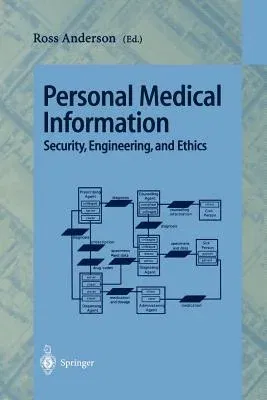Personal Medical Information: Security, Engineering, and Ethics (Softcover Reprint of the Original 1st 1997)Paperback - Softcover Reprint of the Original 1st 1997, 9 July 1997

Qty
1
Turbo
Ships in 2 - 3 days
In Stock
Free Delivery
Cash on Delivery
15 Days
Free Returns
Secure Checkout
Print Length
254 pages
Language
English
Publisher
Springer
Date Published
9 Jul 1997
ISBN-10
3540632441
ISBN-13
9783540632443
Description
Product Details
Book Edition:
Softcover Reprint of the Original 1st 1997
Book Format:
Paperback
Country of Origin:
DE
Date Published:
9 July 1997
Dimensions:
23.39 x
15.6 x
1.42 cm
ISBN-10:
3540632441
ISBN-13:
9783540632443
Language:
English
Location:
Berlin, Heidelberg
Pages:
254
Publisher:
Weight:
381.02 gm

